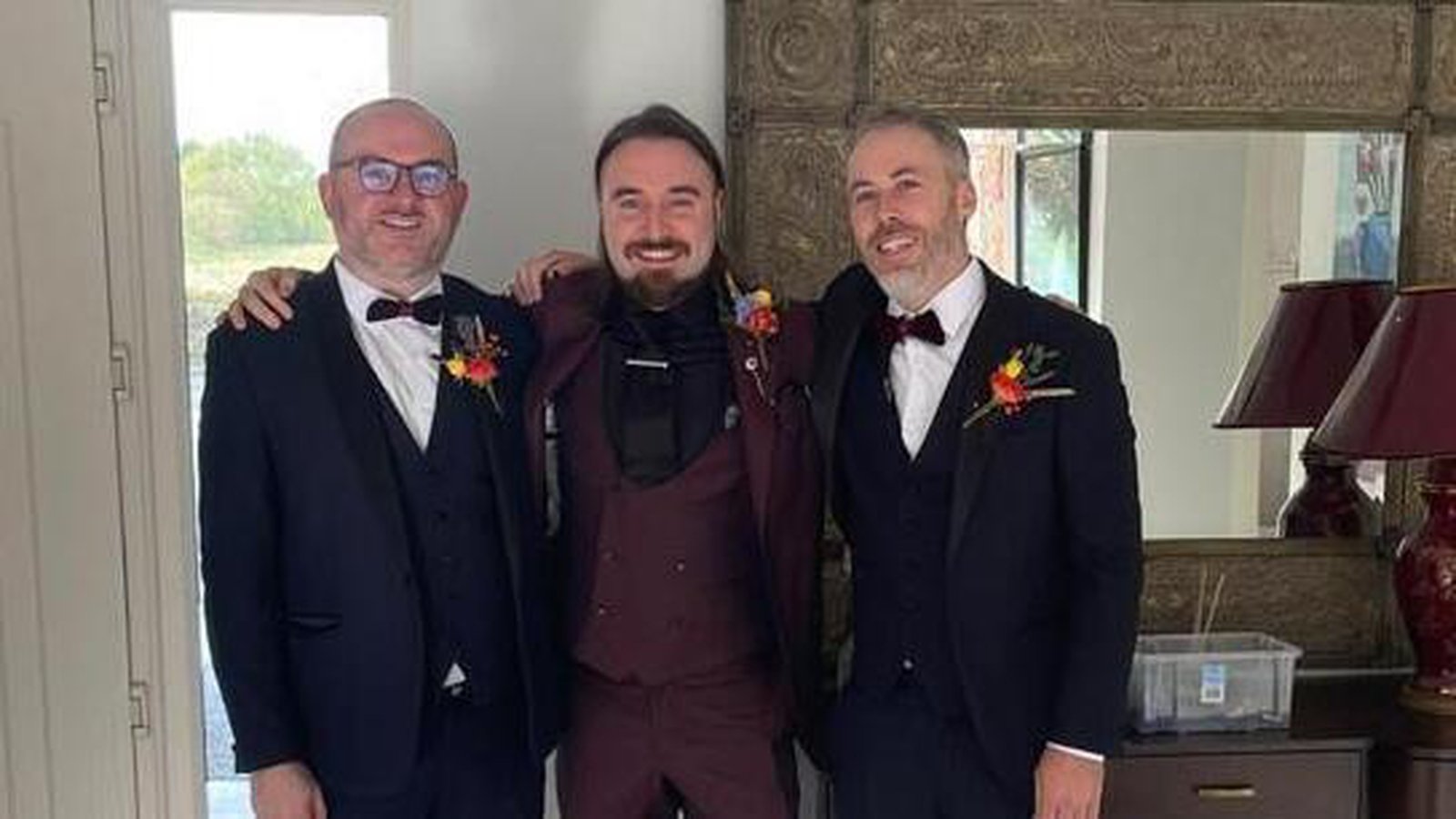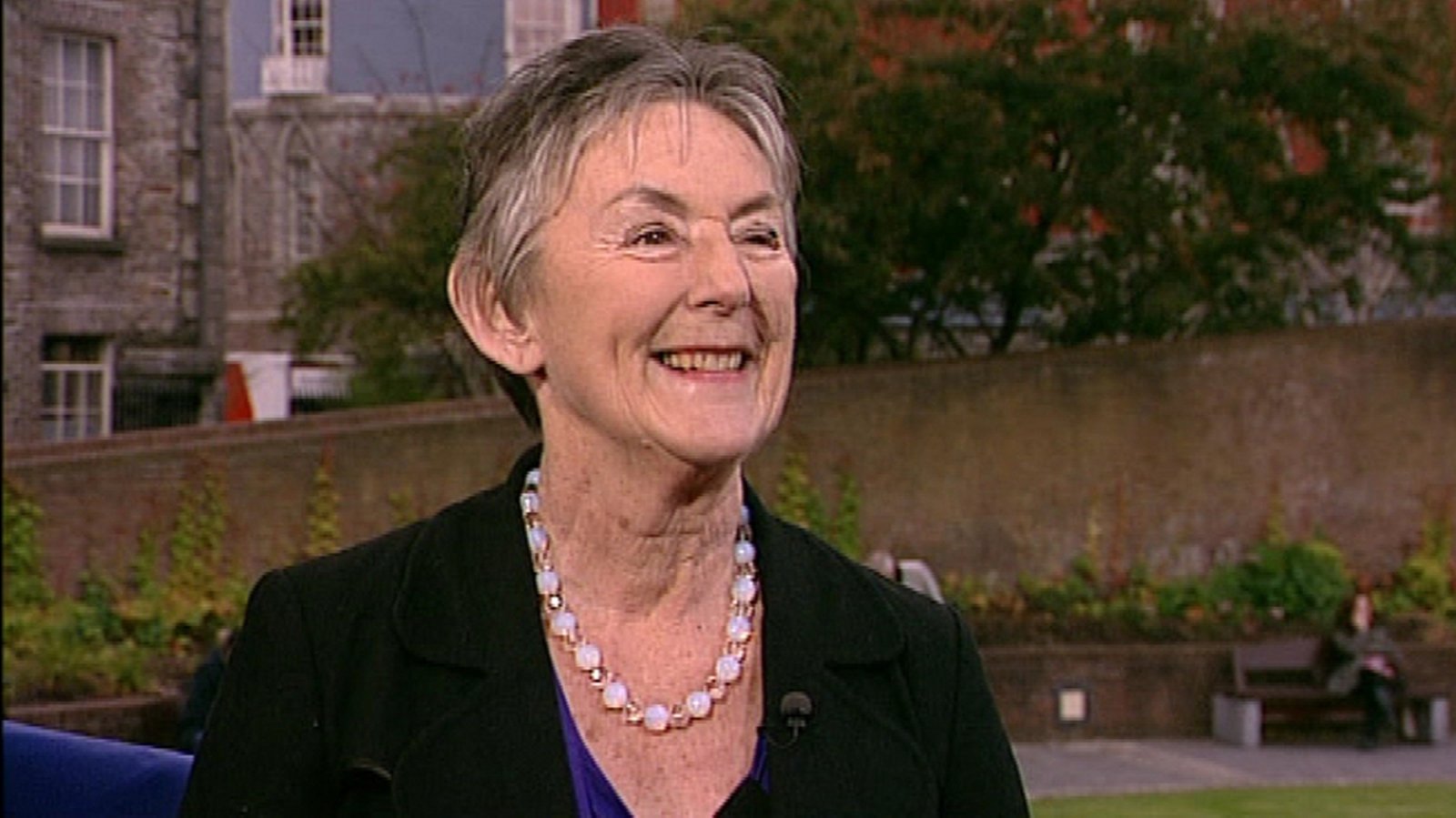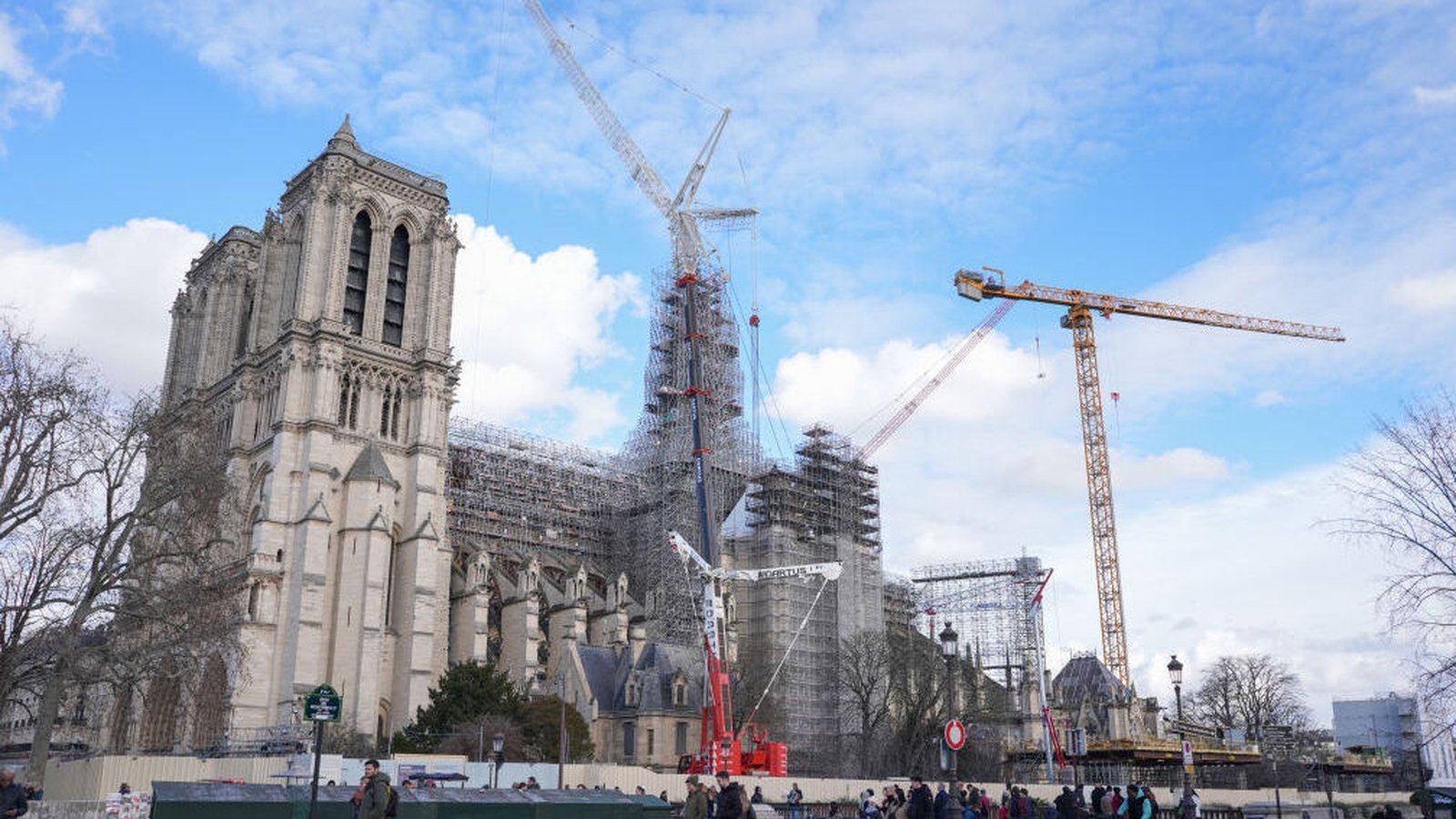Slashed supports for Ukrainian arrivals just weeks away
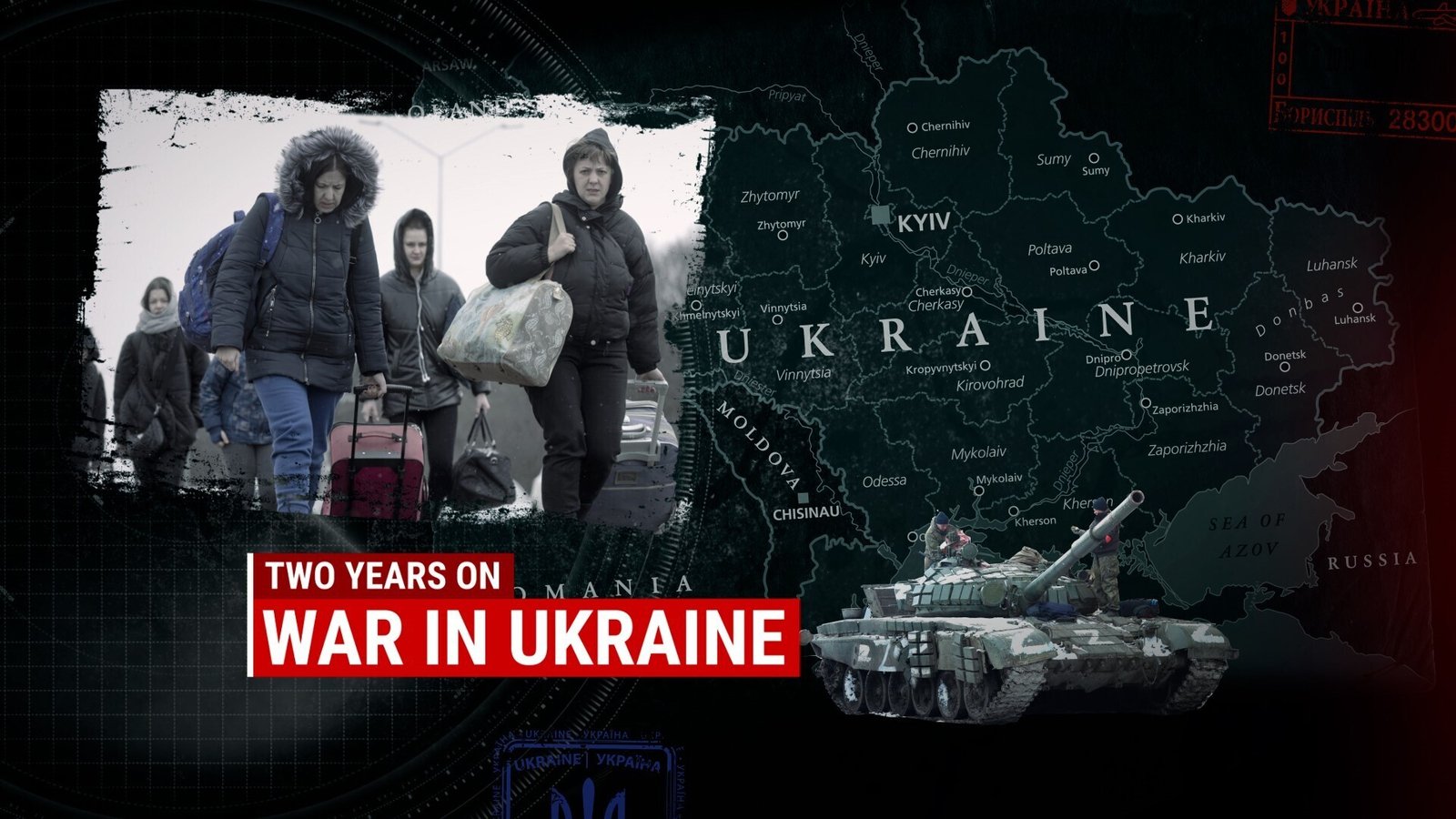
This week RTÉ News is carrying a series of reports across digital, radio and television looking at the situation in Ukraine two years after the Russian invasion.
In March 2022, a few weeks into the war in Ukraine, the Minister for Integration Roderic O’Gorman told RTÉ’s This Week programme that hotel rooms were being used to meet the “short-term accommodation needs” of those fleeing the conflict.
Indeed “serviced accommodation”, including in guesthouses and hotels, is still described as “short-term” in the Ukrainian accommodation statistics published by the Department each week.
Nevertheless, according to those same statistics, this type of accommodation is where most displaced Ukrainians in Ireland now live, some 57,634 as of 11 February.
We know that in reality short term hotel stays have turned into a long term option for many.
They have fluctuated since the plans were announced, with a spike of 517 at the end of January.
29 January was mooted in some media reports as a potential introduction date.
But there is evidence too that the number of displaced Ukrainians moving out of such accommodation is growing, whether it is because some are choosing to go back to Ukraine or to move elsewhere, or because they are moving into pledged accommodation or have found their own alternative.
The numbers living in ‘serviced accommodation’ neared 60,000 on 30 October last year, hitting 59,488.
However they have been largely going in the opposite direction since, falling by 1,854 by 11 February, and there is evidence that this trend is continuing.
Now, as the second anniversary of the start of the war approaches, the Government is moving ahead with plans to cease offering this kind of accommodation to new arrivals from Ukraine altogether.
Plans were published in December that the Government said would “come into effect early in 2024”.
Late January was muted, but we now look on course to see their introduction by early March.
The legislation underpinning the new proposals, the Social Welfare and Civil Law (Miscellaneous Provisions) Bill 2023, is now going through the houses of the Oireachtas.
This process is expected to be wrapped up by next Wednesday when a final amendment to the bill, on a completely unrelated matter, is due to be come before the Dáil.
Limited social welfare payments
Once passed the legislation will allow the Minister for Integration to designate specific accommodation for new arrivals where residents will only be entitled to limited social welfare payments for the duration of their stay.
A Government press release published on 12 December outlined how this will work, or at least what is proposed.
The Government plans to limit stays at designated accommodation centres to 90 days, and social protection payments to residents to a weekly allowance of €38.80 per adult and €29.80 per child for the duration of their stay.
This allowance mirrors exactly the one currently paid to asylum seekers living in Direct Provision Accommodation.
When the 90 days is up, “no State-supported accommodation will be provided… other than the supports provided through the Offer a Home or pledged accommodation schemes,” the statement said.
However the National Coordinator of the Ukraine Civil Society Forum (UCSF), Emma Lane-Spollen is concerned that none of this detail is set out in the legislation.
“There are absolutely no safeguards to say that this is the way it will be… there is nothing to stop the minister at the stroke of his pen making every accommodation centre a designated accommodation centre,” Ms Lane-Spollen said.
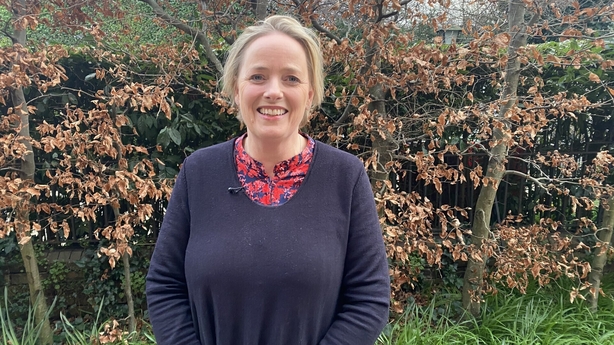
UCSF also has raised concerns about what will happen under the current plan, especially after the 90 day period elapses.
“I think what you will see is three scenarios, you’re either going to have women and children made street homeless, we’re either going to have people living there (in the designated accommodation centres) for protracted stays, in totally unsuitable accommodation for months and months and months, or we’re going to see a surge in people seeking International Protection,” Ms Lane-Spollen said.
Displaced Ukrainians do not have to apply for International Protection as they are Beneficiaries of Temporary Protection within the EU.
What might encourage them to seek asylum instead is that under the EU Reception Conditions Directive the State has to provide “material reception conditions” such as housing, food and hygiene facilities.
However just last year the State was found in breach of these obligations by the High Court when it failed to provide them for a homeless asylum seeker.
And once again the system is overstretched, with 970 international protection applicants currently without any State provided shelter amid an accommodation shortage.
The Department of Justice has also pointed out that while Ukrainians can seek international protection, they would loose certain entitlements when entering the process “such as the (automatic) right to work and to certain social welfare benefits”.
These would include jobseekers allowance after the initial 90 days, and child benefit.
The Minister for Integration also said in December that he did not believe the changes would lead to homelessness.
“Ukrainians are an extremely mobile population, they have the right under the temporary protection directive to move to other EU member states, they have the right to move back to their own country as well.
“So we’re not seeing, when other member states introduce changes like this, any sort of instances of homelessness there,” Mr O’Gorman said.
Another option that remains open to those who loose their accommodation after 90 days under the new system is pledged accommodation, both in shared homes and under the “offer a home scheme”.
The numbers moving into pledged accommodation continue to grow, with the latest figures from the CSO putting the total number housed by hosts in receipt of the €800 per month payment at 21,824 as of 4 February.
This figure records both formal and informal pledging arrangements, as all hosts are entitled to the payment.
“25% of displaced Ukrainians who are currently here in Ireland are living in host homes and pledged accommodation, 60% of them are in shared accommodation, so it just gives an idea of the real response of Irish people wanting to play their part, to step up,” Angie Gough, CEO and Co-Founder of Helping Irish Hosts said, but she has concerns about the new proposals.
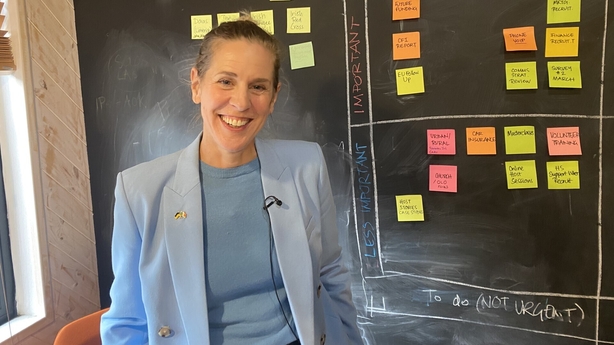
“Hosting is a great thing for a very specific cohort of people. It is not a solution for people who have very high needs, who are particularly vulnerable, who have mental health needs, who have physical disability needs, there’s a whole group of people like that who are going to fall through the gaps with the 90 days, when that plays out in real life, and there’s still no plan in place for those people, and that’s hugely concerning,” Ms Gough said.
The Government has said it is introducing the new measures “to bring Ireland more into line with other European countries in how we assist those fleeing the war in Ukraine.”
Ms Lane-Spollen described it as “as a policy of deterence”.
Indeed it does seem to be having an effect on the weekly numbers arriving here.
They have fluctuated since the plans were announced, with a spike of 479 the week before 29 January, which was mentioned in some media reports as a potential introduction date.
Since then the numbers have dropped off somewhat, with 189 arriving in the week to last Wednesday, and 140 arriving the week before.
The plan has not yet been implemented, but with the bill underpinning it expected to become law in the next fortnight, it will be soon.
As the war enters its third year it is clear that more Ukrainians will become displaced, and some will continue to seek shelter in Ireland.
A very different welcome awaits them to those who came before.

